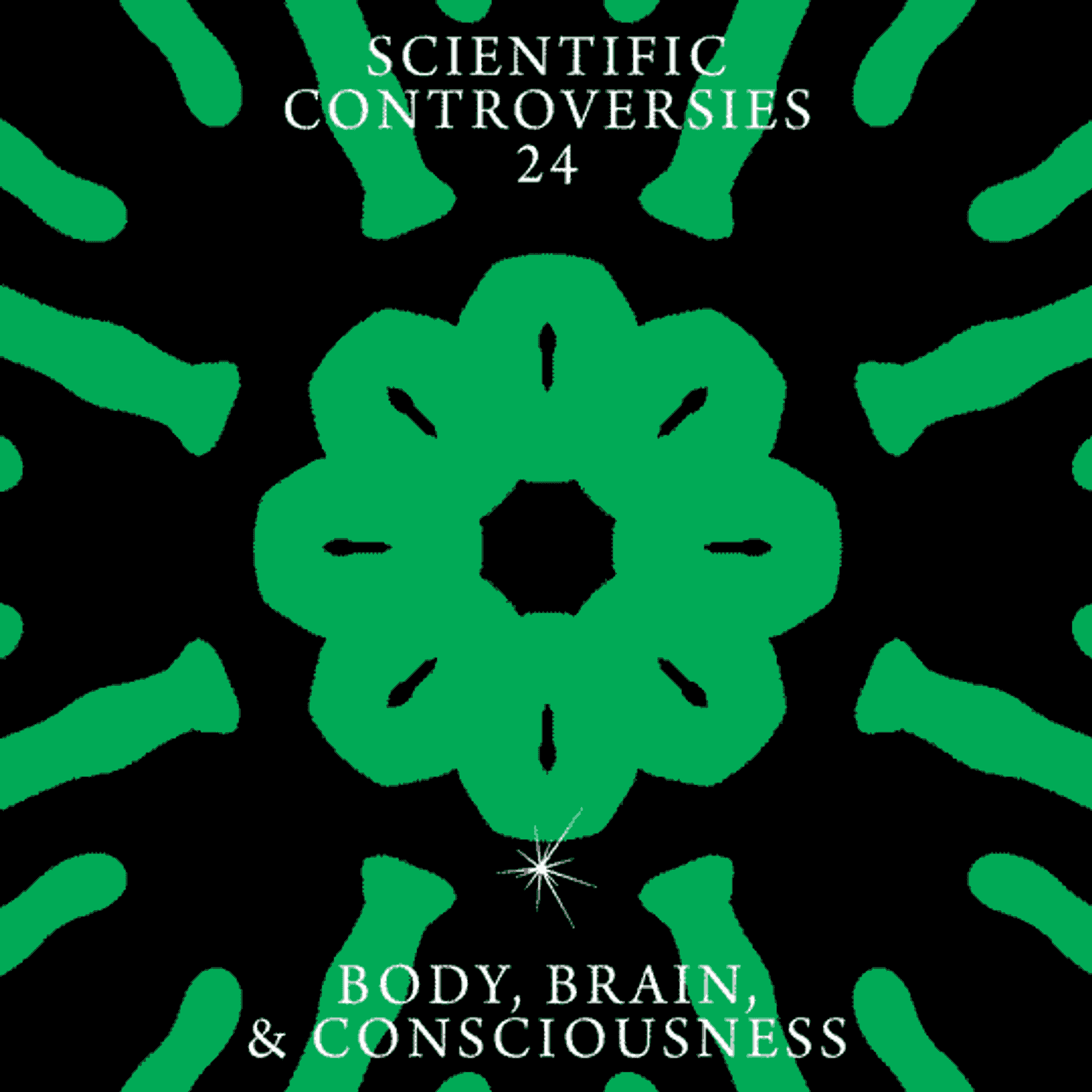
Scientific Controversies No. 24: Body, Brain and Consciousness
Why do “I” experience life? Who is this “I”, the self? Is she real? Is consciousness possible without this sense of self? Is consciousness important, a lasting feature of the universe? Or is consciousness a failed evolutionary experiment?
Conversations on consciousness can be laden with magical language, borderline mystical and meaningless. Yet biologists and neuroscientists seek a concrete, scientific understanding of it. Consciousness emerged from a continuum of increasingly complex biological systems. Some scientists hypothesize that living beings evolved a schema of self, the ability to direct attention, and then a self-aware consciousness. Humans place themselves at the end of this evolutionary progression, but is this misguided? Scientists struggle to see through their own mind’s tricks, striving for the rewards of greater understanding, and a more profound connection with nature.
Neuroscientist Anil Seth suggests the neuroscience of consciousness can be explained through biological processes that are designed into us for our survival. To understand consciousness and our minds, we need to understand the human brain as a system embedded within its environment.
Neuroscientist Joseph LeDoux traced these survival mechanisms past our mammalian ancestors to simple organisms such as eukaryotes, prokaryotes, and bacteria. In these ancient unicellular organisms he found recognizable survival behaviors. Many of our routine human emotions and behaviors are possibly more ancient than we realize and are not always tools of the conscious mind. If we saw consciousness as having a peripheral role in the evolution of life, it would dramatically improve our understanding of human behavior and the science of consciousness.
Please join our Director of Sciences, Janna Levin, as she hosts neuroscientists Anil Seth and Joseph LeDoux to discuss consciousness, to see ourselves as less apart from, and more a part of, the rest of nature.
Before and after the conversation, hang out with neuroscientists while looking at brain specimens from Mount Sinai’s brain bank and Cold Spring Harbor Laboratory. After the talk, there’ll be a book signing with Anil Seth and Joseph LeDoux, rare grooves from DJ Black Helmet, and stargazing with the Amateur Astronomers Association of NY. Savory food by Palenque Colombia Foods will be available all night long.
Joseph LeDoux is a University Professor and Henry and Lucy Moses Professor of Science at New York University, and he directs the Emotional Brain Institute at NYU. His work is focused on the brain mechanisms of emotion, memory, and consciousness. LeDoux has received a number of awards for his research, and he is an elected member of the American Academy of Arts and Sciences and the National Academy of Sciences USA. He is also the author of several books, including The Emotional Brain, Synaptic Self, Anxious (2016 APA William James Book Award), and The Deep History of Ourselves (finalist for the 2020 Pen America E.O. Wilson Award for Literary Science Writing). He is the 2023 President-Elect of the Association for the Scientific Study of Consciousness. As a sideline, he is the lead singer and songwriter in the rock band, The Amygdaloids, and in the acoustic duo So We Are.
Anil Seth is a neuroscientist and author who has pioneered research into the brain basis of consciousness for more than 20 years. He is a Professor of Neuroscience at the University of Sussex, Co-Director of the Canadian Institute for Advanced Research Program on Brain, Mind and Consciousness, a European Research Council Advanced Investigator, Editor-in-Chief of Neuroscience of Consciousness, and is recognized as being in the top 1% of researchers in his field (Web of Science). His 2017 TED talk has been viewed more than twelve million times, and his book Being You was a Sunday Times Bestseller and a Book of the Year for The Economist, The New Statesman, Bloomberg Business, The Guardian, and The Financial Times. He is lead scientist on Dreamachine, part of Unboxed 2022. www.anilseth.com
Janna Levin is the Pioneer Works Director of Sciences and the editor-in-chief of Pioneer Works Broadcast. She is also the Claire Tow Professor of physics and astronomy at Barnard College of Columbia University. A Guggenheim Fellow, Janna has contributed to an understanding of black holes, the cosmology of extra dimensions, and gravitational waves in the shape of spacetime. She is the presenter of the NOVA feature Black Hole Apocalypse, aired on PBS—the first female presenter for NOVA in 35 years. Janna also won a PEN prize for a first work of fiction. Her latest book is Black Hole Survival Guide.
Scientific Controversies is supported by Science Sandbox, a Simons Foundation initiative dedicated to engaging everyone with the process of science.